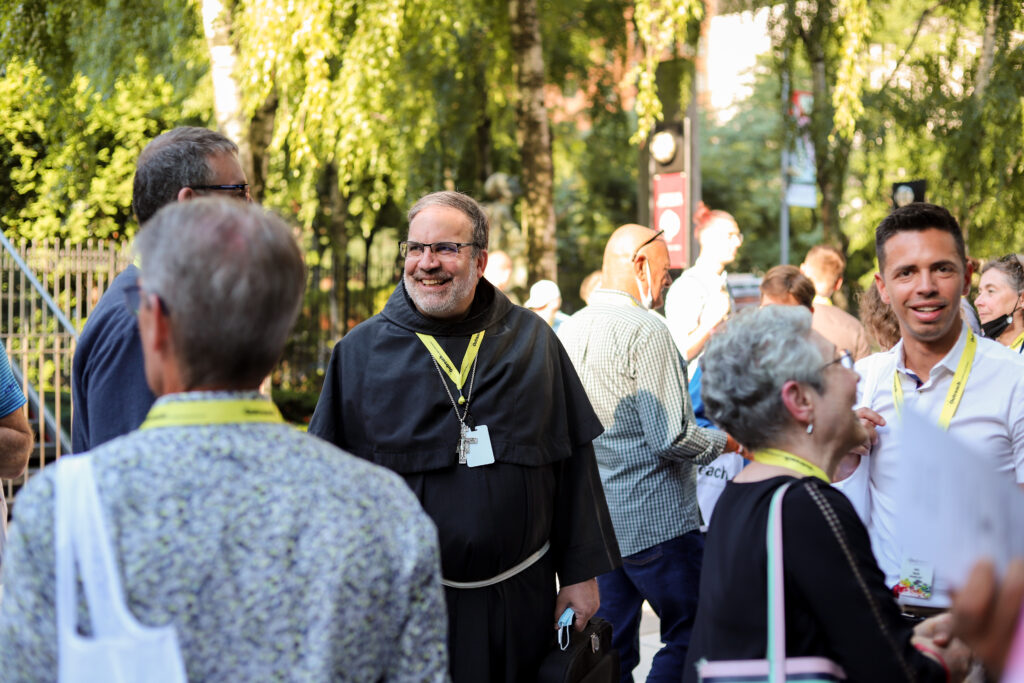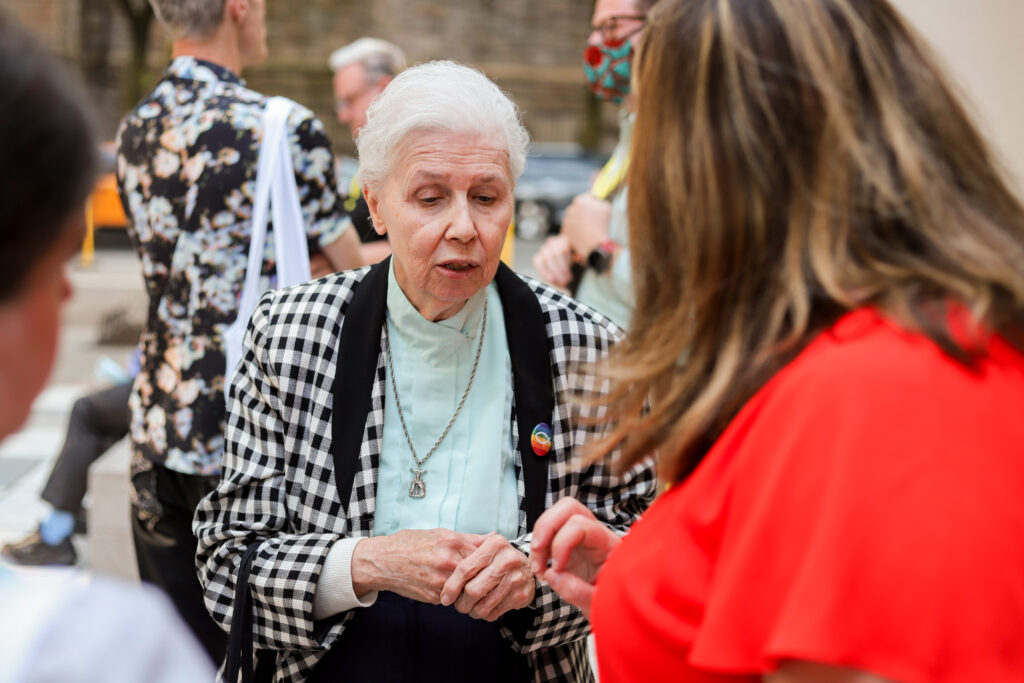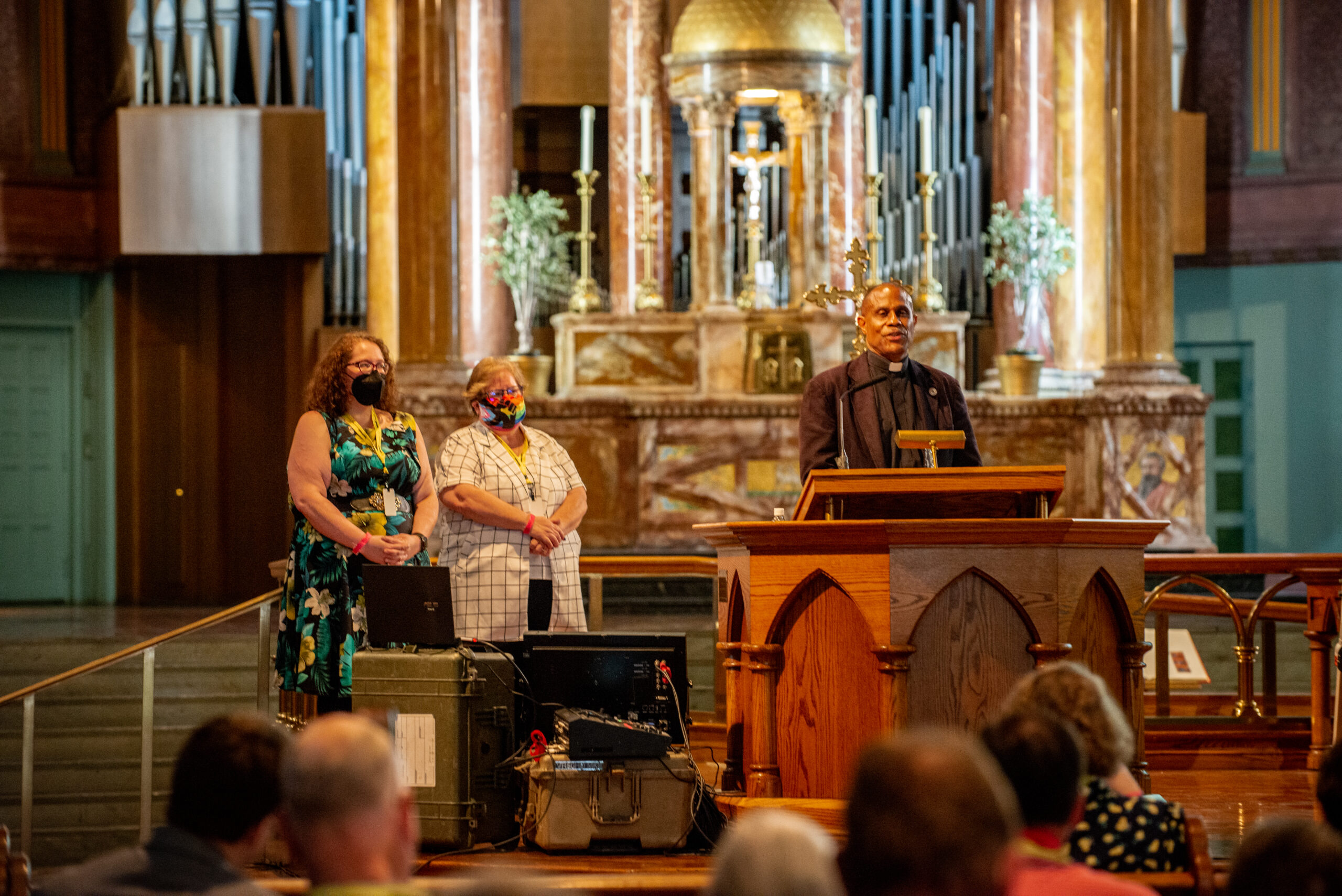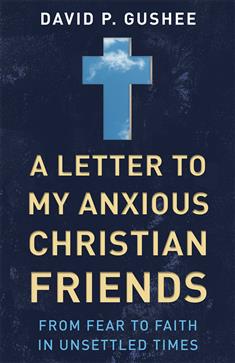More than 200 people from all over the United States and Canada, and from countries like the United Kingdom, Italy, Colombia and Uganda, gathered for the first in-person Outreach LGBTQ Catholic Ministry Conference this past weekend in New York City. These were theologians and writers; high school teachers and college professors; pastors and parish lay leaders; mothers and fathers; gay, straight, bisexual, lesbian and transgender people—all part of the same church.
As I mentioned a few days ago, the conference’s goals were to build community, share best practices and worship together, and by that measure the conference was a success. But, from a more personal view, here’s what I saw at the conference.
First, people connected. One of the most common refrains I heard was people’s joy over meeting others that they had previously only emailed or met via Zoom. Sister Luisa Derouen, a Dominican who has worked with transgender people since 1999, said that she finally met a woman with whom she had worked for years, but had never seen in person. Many people met others engaged in similar ministries and found they shared similar hopes and dreams. Simply coming together physically helped build a sense of community in a ministry where people can sometimes feel isolated.
Also, people told me how happy they were simply to meet some of their heroes and mentors, people they felt they knew, but only from their books and writings. One person asked me, “Is that the James Alison?”
“Both Bishop Stowe’s opening address and Father Massingale’s morning address were livestreamed on St. Paul’s Facebook page and the Outreach YouTube site.”
Second, people learned. From a powerful opening keynote where Bishop John Stowe of Lexington, Kentucky told LGBTQ people “I love you,” to Father Bryan Massingale’s prophetic challenge to see LGBTQ issues as inseparable from race and color, to Sister Jeannine Gramick’s encouragement that substantive change in the church comes slowly, people were spiritually fed by some of the most important voices in the LGBTQ Catholic world.
The panelists—speaking on topics as varied as ministry in Catholic parishes, high school and college ministry, mental health issues, transgender issues, employment in Catholic institutions, ministry to families with LGBTQ people and more—shared wisdom based not only on study but on years of experience. As I mentioned during the weekend, any one of the panelists could have been a keynote speaker. Such was the depth and breadth of experience they brought.
The keynotes (including the beautiful opening and morning prayers) and Mass at Manhattan’s Church of St. Paul the Apostle were also shared with those who could not join us in person. Both Bishop Stowe’s opening address and Father Massingale’s morning address were livestreamed on St. Paul’s Facebook page and the Outreach YouTube site, with hundreds of people watching online.

The Sunday Vigil Mass, at which I presided and preached on what it means to be a disciple, was also livestreamed. (Sister Jeannine’s talk was recorded and will be available via our YouTube page soon.) Later, we hope to publish the texts of as many of the panel contributions as possible.
Third, people were challenged. One of the most moving moments for me was the panel on theology and LGBTQ people, which the panelists approached from vastly different viewpoints. The panel featured esteemed theologians James Alison, Lisa Fullam, Jason Steidl and Brian Flanagan and the Rev. Philip Bochanski, who leads the Catholic apostolate Courage. They had a lively, frank and honest discussion about Catholic theology around homosexuality, and I think everyone was impressed with the collegiality with which it was done.
It was a reminder that even contentious issues that people have a personal stake in (Jason Steidl described himself as a “queer married Catholic”) can be engaged in with respect. Near the end of the panel, Brian Flanagan asked the participants what they had learned from someone with whom they had disagreed. Overall, the panel was a model of collegiality and synodality.
Fourth, people delighted in worship. One of the greatest joys for me during the conference was the liturgical experience, our worship together. The Church of St. Paul the Apostle, knowing that we were coming to their regular 5 p.m. Saturday Vigil Mass, expanded their regular choir, with the result of some beautiful music. One participant emailed me and said, “That was the best music I’ve ever heard in church.”
But the biggest surprise for me, liturgically, were the opening, morning and closing prayers. I had asked Meredith Augustin, music minister of the Church of St. Francis of Assisi in New York, to see what she could come up with for a brief opening prayer for Bishop Stowe and a morning prayer before Father Massingale’s talk. What she came up with, in just a few weeks, was extraordinary: in one case, a complete prayer service with a full choir, and in the other, a prayer service and a duet with William Mulligan.
And for our closing prayer, Bruce Rameker, from the Church of St. Ignatius Loyola in New York, surprised us with an a cappella version of a chant by Hildegard of Bingen. I’m not much of a musician, so I was so grateful to my friends who are!
Fifth, people had fun! In addition to the more “formal” elements of the program—keynoters, panels and liturgies—it was great to see people simply enjoying one another’s company and laughing. This was something I saw often as we broke bread together, walked back and forth from Fordham to the church or from one room to another. For a few people, it was their first time in New York City, which added to the excitement of the weekend. Lots of hugs, too. (Covid appropriate, of course.)

There are many people to thank: Ryan Di Corpo, Outreach’s managing editor, who coordinated all the logistics with Courtney Ryan from ConferenceDirect (one of our benefactors), as well as the O’Hare Fellows and America summer intern Stephen McNulty. America Media staff and volunteers helped to raise money, deal with the payments, lay out and publish our brochure, set up the registration table, direct people to their events, take photos and videos and help with any of the million tasks required.
We’re also grateful to our co-sponsors, America Media and Fordham’s Center on Religion and Culture, to our generous benefactors, and to you for your prayers.
Maybe the best indication of the conference’s success was how many people had ideas for the next one. “How about a panel on working with your local bishop?” they asked. “What about one on spiritual direction for LGBTQ people?”
We are tentatively planning another conference for 2024, but in the meantime, we hope to sponsor some lecture series in the coming year. You can keep up to date with all this and and much more here at Outreach.faith.




